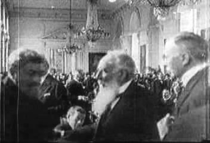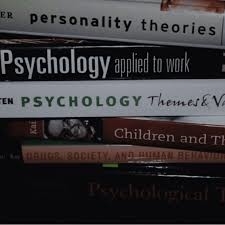
Psychology
Psychology is the science of mind and behavior. Psychology includes the study of conscious and unconscious phenomena, as well as feeling and thought. It is an academic discipline of immense scope. Psychologists seek an understanding of the emergent properties of brains, and all the variety of phenomena linked to those emergent properties, joining this way the broader neuro-scientific group of researchers. As a social science, it aims to understand individuals and groups by establishing general principles and researching specific cases. In this field, a professional practitioner or researcher is called a psychologist and can be classified as a social, behavioral, or cognitive scientist. Psychologists attempt to understand the role of mental functions in individual and social behavior, while also exploring the physiological and biological processes that underlie cognitive functions and behaviors. Psychologists explore behavior and mental processes, including perception, cognition, attention, emotion, intelligence, subjective experiences, motivation, brain functioning, and personality. This extends to interaction between people, such as interpersonal relationships, including psychological resilience, family resilience, and other areas. Psychologists of diverse orientations also consider the unconscious mind. Psychologists employ empirical methods to infer causal and correlational relationships between psychosocial variables. In addition, or in opposition, to employing empirical and deductive methods, some—especially clinical and counseling psychologists—at times rely upon symbolic interpretation and other inductive techniques. Psychology has been described as a "hub science" in that medicine tends to draw psychological research via neurology and psychiatry, whereas social sciences most commonly draws directly from sub-disciplines within psychology. While psychological knowledge is often applied to the assessment and treatment of mental health problems, it is also directed towards understanding and solving problems in several spheres of human activity. By many accounts, psychology ultimately aims to benefit society. The majority of psychologists are involved in some kind of therapeutic role, practicing in clinical, counseling, or school settings. Many do scientific research on a wide range of topics related to mental processes and behavior, and typically work in university psychology departments or teach in other academic settings (e.g., medical schools, hospitals). Some are employed in industrial and organizational settings, or in other areas such as human development and aging, sports, health, and the media, as well as in forensic investigation and other aspects of law.
Ver todos
0
0

Sociology
Sociology is the study of human behavior. Sociology refers to social behavior, society, patterns of social relationships, social interaction, and culture that surrounds everyday life. It is a social science that uses various methods of empirical investigation and critical analysis to develop a body of knowledge about social order and social change.
Ver todos
0
0

Criminal justice
Criminal justice is the delivery of justice to those who have committed crimes. The criminal justice system is a series of government agencies and institutions. Goals include the rehabilitation of offenders, preventing other crimes, and moral support for victims. The primary institutions of the criminal justice system are the police, prosecution and defense lawyers, the courts and prisons.
Ver todos
0
0

Behaviorism
Behaviorism is a systematic approach to understanding the behavior of humans and other animals. It assumes that behavior is either a reflex evoked by the pairing of certain antecedent stimuli in the environment, or a consequence of that individual's history, including especially reinforcement and punishment contingencies, together with the individual's current motivational state and controlling stimuli. Although behaviorists generally accept the important role of heredity in determining behavior, they focus primarily on environmental events. It combines elements of philosophy, methodology, and theory. Behaviorism emerged in the early 1900s as a reaction to depth psychology and other traditional forms of psychology, which often had difficulty making predictions that could be tested experimentally, but derived from earlier research in the late nineteenth century, such as when Edward Thorndike pioneered the law of effect, a procedure that involved the use of consequences to strengthen or weaken behavior. With a 1924 publication, John B. Watson devised methodological behaviorism, which rejected introspective methods and sought to understand behavior by only measuring observable behaviors and events. It was not until the 1930s that B. F. Skinner suggested that covert behavior—including cognition and emotions—subjects to the same controlling variables as observable behavior, which became the basis for his philosophy called radical behaviorism. While Watson and Ivan Pavlov investigated how (conditioned) neutral stimuli elicit reflexes in respondent conditioning, Skinner assessed the reinforcement histories of the discriminative (antecedent) stimuli that emits behavior; the technique became known as operant conditioning. The application of radical behaviorism—known as applied behavior analysis—is used in a variety of contexts, including, for example, applied animal behavior and organizational behavior management to treatment of mental disorders, such as autism and substance abuse. In addition, while behaviorism and cognitive schools of psychological thought do not agree theoretically, they have complemented each other in the cognitive-behavior therapies, which have demonstrated utility in treating certain pathologies, including simple phobias, PTSD, and mood disorders.
Ver todos
0
0

Crisis negotiation
Crisis negotiation is a law enforcement technique used to communicate with people who are threatening violence (workplace violence, domestic violence, suicide, or terrorism), including barricaded subjects, stalkers, criminals attempting to escape after a botched robbery, and hostage-takers. Crisis negotiation is often initiated by the first officer(s) on the scene.
Ver todos
0
0

Criminal psychology
Criminal psychology, also referred to as criminological psychology, is the study of the views, thoughts, intentions, actions and reactions of criminals and all who participate in criminal behavior. Criminal psychology is related to the field of criminal anthropology. The study goes deeply into what makes someone commit a crime, but also the reactions after the crime, on the run or in court. Criminal psychologists are often called up as witnesses in court cases to help the jury understand the mind of the criminal. Some types of psychiatry also deal with aspects of criminal behavior. Criminal behavior can be stated as “Any kind of antisocial behavior, which is punishable usually by law but can be punished by norms, stated by community,” therefore, it is difficult to define it as there is a fine line between what could be considered okay and what's considered not to be, being considered as violation at one point of time may now be accepted by community.
Ver todos
0
0

Interrogation
Interrogation (also called questioning) is interviewing as commonly employed by law enforcement officers, military personnel, and intelligence agencies with the goal of eliciting useful information, particularly information related to suspected crime. Interrogation may involve a diverse array of techniques, ranging from developing a rapport with the subject to torture.
Ver todos
0
0

Negotiation
Negotiation is a dialogue between two or more people or parties intended to reach a beneficial outcome over one or more issues where a conflict exists with respect to at least one of these issues. Negotiation is an interaction and process between entities who aspire to agree on matters of mutual interest, while optimizing their individual utilities. This beneficial outcome can be for all of the parties involved, or just for one or some of them. Negotiators need to understand the negotiation process and other negotiators to increase their chances to close deals, avoid conflicts, establishing relationship with other parties and gain profit. Negotiation occurs in organizations, including businesses, non-profits, and within and between governments as well as in sales and legal proceedings, and in personal situations such as marriage, divorce, parenting, etc. Professional negotiators are often specialized, such as union negotiators, leverage buyout negotiators, peace negotiator, or hostage negotiators. They may also work under other titles, such as diplomats, legislators, or brokers. There is also negotiation conducted by algorithms or machines known as autonomous negotiation. For automation, the negotiation participants and process have to be modeled correctly.
Ver todos
0
0




Comentarios